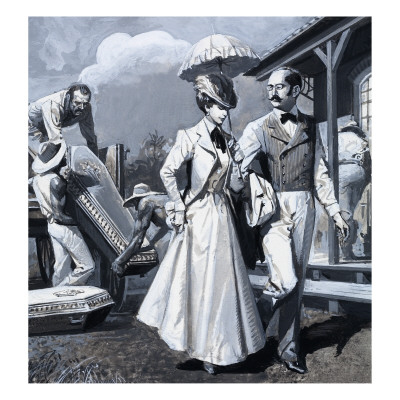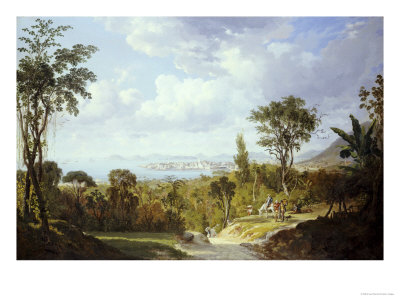Ship Passengers arriving in San Francisco: 1800s

SS Tennessee
Arrive San Francisco
March 16, 1852
SS Tennessee
Captain Totten
From Panama
Passage
Daily Alta California, March 20, 1852
ARRIVAL OF THE TENNESSEE!
Nineteen Days Later from the Atlantic.
Total Loss of the Steamer North America, with 900 passengers on board.
Passengers and Crew all Saved
The P. M. S. S. Co.'s Steamer Tennessee, arrived in this harbor at 8 o'clock yesterday morning, having left Panama on the 26th of February, at 6 P. M. She brings a large mail, and over 800 passengers.
She brings dates to the 14th of February, and made the passage from New York hither in 28-1/2 days, the quickest trip which has ever been made to this city.
We are under obligations to Capt. Totten for stopping his boat in the lower bay, to allow our Marine Reporter to come on board. We also have to thank Purser Isaacs, for the passenger list, and the following memoranda:
The Tennessee left Panama en the evening of the 26th February, with the U. S. Mails and 630 passengers. The Fremont arrived on the 23d. There were no other steamers in port.
The emigration was still on the increase, and tickets for the regular steamers sold for months ahead. There were 3000 persons on the Isthmus, waiting for passage. The dates from the Atlantic States are to the 12th February, but contain nothing of particular interest.
Among the Tennessee's passengers will be seen the names of Madame Biscaccianti, also Jno. Dunn and Madame Celeste; the two latter engaged for the Jenny Lind Theatre. The Isthmus continued healthy, and the roads good.
The Steamer North America left San Juan on the 23d February, with 900 passengers, and on the evening of the 28th inst., went ashore about 60 miles south of Acapulco, when the Tennessee passed her she was lying broadside on the beach, the surf breaking heavily against her sides. At the time of her striking the sea was smooth, and a bright moon shining. The passengers had all been safely landed, and with most of their baggage had arrived at Acapulco after a tiresome march of two and half days. The Captain had not arrived at Acapulco at the time of the Tennessee's sailing. The ship at the last accounts was going to pieces, her keel having already floated ashore.
It was impossible for the Tennessee to take away the passengers of the North America, the former steamer being filled to her utmost capacity. From motives of prudence and justice to all, no passengers were received with the consent or knowledge of the Captain.
A subscription of $700 was raised on board the Tennessee for the relief of the destitute at Acapulco, and placed in the hands of the American Consul. On the 3d of March spoke bark Elizabeth, 65 days from Panama, at anchor 20 miles south of Acapulco, in want of water and provisions, which were furnished her from the steamer. Her passengers, to the number of 120, had left that morning in boats for Acapulco. The Blonde, Kowena, and Thetis, with an aggregate of 1,500 passengers, had left Panama for San Francisco within a week previous to the sailing of the steamer.
The new steamers Winfield Scott and Union were expected at Panama early in April.
To Adams & Co.; G. A. Ferris, Gov't Agent; Leland A. Sullivan, and Gregory, we are indebted for files of late papers, and the delivery of various correspondence.
Below we give the particulars of the disaster to the North America, from a correspondent who was on board:
Loss of the North America
MESSRS. EDITORS: I hasten to inform you of the total loss of the steamship North America, on the night of the 27th ult., at a place called Los Ramidas, near the mouth of the river Nepa fifty or seventy-five miles below Acapulco.
The North America started from San Juan del Sud on the evening of the 23d of February. Nothing of interest occurred until the afternoon of the 26th, when we paused the steamship Pacific, bound to San Juan del Sud. We were running close inland, the Pacific seaward about one mile distant. It was a common remark among passengers that we were running too close to the shore, but still we glided on, the sea at the time being perfectly smooth. On the following day we continued to run in the same close proximity to the land, nearing it along in the afternoon; and in the evening the shore was about a quarter of a mile distant. Some expressed their anxiety at our running so close to the land in the night, and one sea-faring man made the remark that the ship would be run aground if they did not keep her off to sea. All however, reposed some confidence in the Captain's knowledge of the coast, and supposed that he must be well acquainted with every inch of ground, for we did not believe that he would be guilty of tampering with the lives of a thousand human beings.
Universal good feeling and buoyancy of spirits seemed to prevail among the passengers at the anticipation of being snugly anchored at Acapulco in the morning, and as the hour of bed-time arrived, most of them retired to rest, little dreaming that they would so soon be aroused by such unwelcome news. The evening was beautiful, the atmosphere clear, the moon bright and stars twinkling in all their brilliancy. About 11 o'clock the first mate thought he saw something on shore and called the captain who immediately came on deck, mounted the wheelhouse and took a survey of the coast. At this time we were running outside of the surf, and unless the captain was blind or crazy he must have seen that we were too close to the shore, and therefore should have kept her off; but instead of this he changed her course toward the shore, when she immediately struck, at first very lightly. The order was given to "slow her;" she thumped again much harder, and then again. The order was given to "reverse her," but she was hard and fast, and in the attempt to back her off the larboard wheel was rendered useless, the floats being stove off and the iron arms broken. It would be impossible for me to describe the consternation and confusion which reigned supreme among the mass of human beings that now came pouring out of the state rooms.
The dread reality of shipwreck was depicted in each countenance. Many seemed anxious to reach the upper deck before she filled; others, more cool, forced their way up to get a sight of land and form a correct idea of the dangers that surrounded us; while others seemed to give themselves up entirely, and devoted their few spare moments to making their peace with God and all mankind. Here might be seen man and wife clasped in each other's arms, their affection becoming stronger as death seemed to stare them in the face, and they bad come to the firm resolve thus to die. Little children were hanging to the night dresses of their mothers, looking to them as their only means of preservation; and as the surf broke against the side of the vessel, these little innocent things would send up a shriek that could not but touch the hearts of all on board. We laid broadside on, the breakers continually driving the ship nearer shore. As soon as it was universally known that we were on a sandy bottom, with a good sand-beach, the passengers became more calm, and all waited anxiously for the break of day, in order to land on shore. In the mean time, after a lapse of some three or four hours from the time of our first grounding, a boat was got ready to send on shore, the Mexicans having built a fire on the beach as a guide for landing. This boat took a line from the ship to the shore, and as soon as the break of day all the boats were made ready for conveying the passengers from the ship to beach. There was no rush for the boats; the feeling seemed to be universal that the ladies and children should be the first to land. Two valiant men, however, stationed themselves at the gangway, and said that not a single man should enter the boats until every lady and child had been landed; they were the first to pin themselves to the skirts of some of the ladies, and went in the first boat, leaving a number of ladies in the ship at the time. The landing of the passengers was attended with no danger, and by five o'clock on the 28th all the passengers and baggage were landed, and the beach presented the appearance of a California city some three years since. The vessel in the meantime was continually drifting towards the shore by the force of the surf, and had made about four feet of water, although she seemed to rest quite easy on her bed of sand, the sea being perfectly smooth, with scarcely a breath of air. Occasionally a little extra excitement would be got up by the swamping of the boats, this being occasioned by their drifting under the ship's stern on the return of one of the rollers, making the eddy round her rudder very strong. Some two or three men got into this eddy, but fortunately escaped without injury.
An express was started on the afternoon of the 28th, for Acapulco. Three gentlemen started, two of whom were well educated in the Spanish language. On their way they circulated the news, and the authorities laid an embargo on all the mules, and dispatched them to the wreck to bring the passengers and baggage to this place. The party of which I am one secured the first mules, and left on the afternoon of the 29th. I will not attempt to describe the route; those who have been prospecting on the mountains of California can appreciate it when I say that there is a great similarity between the trips. After a severe ride of two days and a half we reached this place. There were on board some 40 or 50 ladies, and about 90 children, and there will undoubtedly be great suffering before they all reach here.
Three vessels (one barque and two schooners) have started from here to go to the wreck and render whatever assistance they can. The American Consul, and the agent of Vanderbilt's line, have likewise started for the wreck.
As regards the loss of this vessel, and the consequent guttering and delay of so many passengers, there is but one opinion, and that is of universal condemnation of Capt. Blethen. It is the most unwarrantable piece of reckless carelessness that ever a sea captain was guilty of, and I cannot account for it in any other way than that he was either drunk, crazy, or bribed. It does not seem reasonable that be should run a steamship on shore on a bright moonlight night, with a perfectly smooth sea, himself standing on the wheel-house, unless be was beside himself, or was paid for so doing. The surf itself was enough to warn him to keep off, instead of which he gave the order to stand in. Even after the vessel had struck he appeared perfectly lost, and all system on board the vessel seemed to be abandoned.
Eight hours elapsed after grounding before the first passenger was landed. If a gale of wind had sprung up suddenly, there must have been many lives lost by his extreme tardiness. Not one effort was made to get out an anchor, in order to keep the vessel from drifting on shore. Many believe that a good energetic captain would have saved the ship, even after she struck. She was allowed to drift on shore, and the captain sat quietly in his state-room, smoking his cigar. As an illustration of the manner in which things were conducted, I will mention that of landing provisions. Instead of the provisions being landed and deposited in a body in some safe place on shore, there to be served out as they were wanted, in order that none should be wasted, they were hoisted up and broken open, each one taking what he pleased, and some appropriating to themselves nearly all of various choice things on board the ship. Steerage passengers in many instances secured enough provisions to last them ten days, while many cabin passengers had not enough to make a meal of. It required but an order from the captain to have regulated this thing. There were many who would have been willing in assist in landing the ship stores, and seeing that they were properly distributed, but who did not feel willing to stand and grab everything as it made its appearance on deck.
P. S. The Tennessee has arrived and I understand that she will sail again this evening. The captain has refused to take a single passenger. I must therefore close this hasty letter. Nearly all the passengers from the wreck are now in. The last accounts from the North America represent the water to be up to her main deck, and the tide ebbs and flows in her. The American Consul has just arrived from the wreck. How all the passengers are to leave this place is more than I can foresee. Many have but a few dollars in money; board is from ten to twelve dollars per week. Drafts are of no account, nobody will cash them; men who can command thousands of dollars in California, are compelled to remain destitute of means here.
Yours, in haste. W. L. Newell.
Passengers by the Tennessee
Married at San Francisco, March 14th, by the Rev. Mr. Williams. Mr. A. S. Beaty to Miss Edith R. Wilson of Sussex County, New Jersey, arrived on the Tennessee.
Sacramento Daily Union, March 16, 1852

|














 Copyright ~ 1998-2018.
Copyright ~ 1998-2018. 